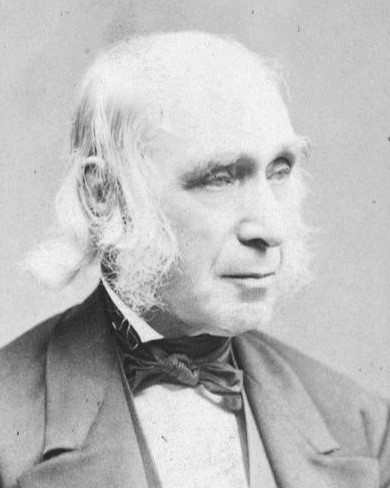Amos Bronson Alcott - Progressive Education Pioneer
Born: November 29, 1799, Wolcott, Connecticut U.S.A.
Died: March 4, 1888, Concord, Massachusetts U.S.A.
Amos Bronson Alcott was a pioneering 19th-century teacher and thinker who championed progressive education, social reform, and transcendentalist ideals despite facing repeated personal and financial setbacks.
Born November 29, 1799, in Wolcott, Connecticut, into a poor, mostly illiterate family as the eldest of eight children. Amos’ mother encouraged him to read and write and, growing up, he drew letters on his kitchen floorboards with charcoal. He attended school for a short period of time, but his family’s financial situation forced him to drop out. Working on his family’s farm, but wanting to continue his education, teenage Amos taught himself. His love and passion for learning later extended far beyond himself as he went on to become a teacher, philosopher and reformer.
Amos had many diverse jobs at the start of his career. For half a decade, he worked in a clock factory, on a farm, as a handy-man and as a merchant who sold small items while traveling across the South. After years of unfulfilling work, Amos pursued his real passion: education. Returning to his hometown, he started schools and became a teacher. His most famous school was the Temple School. At the time, widely accepted methods of teaching included rote memorization and strict discipline, but Amos had a different approach to his lessons. His goal was to enlighten those he taught with kindness, dialogue and empathy. Amos believed in cultivating the whole child; his students studied common subjects alongside music, art, nature and movement. However, his unique approach was not well-received and, as a result, his schools closed.
Amos’ progressive views extended beyond education as well. He was a vegetarian, abolitionist and advocate for women’s rights. In 1830, Amos married Abigail May, whose prominent progressive views towards women’s rights aligned with his. Together, they raised four daughters. One of their daughters, Louisa May Alcott, went on to become a well-respected, renowned and fairly well-compensated author whose most famous book, Little Women, remains an American classic. Amos’ circle was also filled with several influential people. Over the years, he grew close to Ralph Waldo Emerson, Henry Thoreau, Charles Lane and other renowned philosophers.
With Charles, Amos pivoted his focus away from schools and toward communities. The two attempted to form the Fruitlands, a community based on their transcendentalist beliefs in the hopes of ensuring that all who lived in their community, human and animal alike, would have everything necessary to enrich their souls. However, like Amos’ schools, the community failed and was dismantled after just a few months due to a lack of definite rules and internal governance.
Amos and his family never escaped the financial struggles he grew up with due to his failed schools, dissolved community and distaste for the structure of capitalism. While many of Amos’ endeavors did not work out as he intended, his ideals eventually garnered respect from the larger public. He traveled throughout the Midwest to give lectures; wrote the books Tablets, Concord Days and Sonnets and Canzonets; served as superintendent of the Concord School system in Concord, Massachusetts for half a decade; and finally accomplished his goal of opening up a successful school. His Concord School of Philosophy ran for nine years and had financial backing from his daughter Louisa. On March 4, 1888, Amos passed away, leaving a legacy behind him as a groundbreaking progressive for his time.
References:
“Amos Bronson Alcott (U.S. National Park Service).” National Parks Service, U.S. Department of the Interior, www.nps.gov/people/bronson-alcott.htm.
“Bronson Alcott.” Encyclopædia Britannica, Encyclopædia Britannica, inc., www.britannica.com/biography/Bronson-Alcott.
Key words:
Innovation, Civil Rights, Courage, Perseverance, Repair the World – Tikkun Olam, Responsibility, Challenge Injustices, Stand Up for Your Beliefs
Explore ARTEFFECT projects about this Unsung Hero:
Amos Bronson Alcott Artworks

